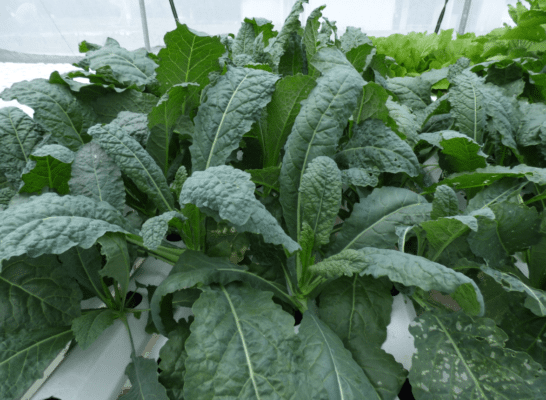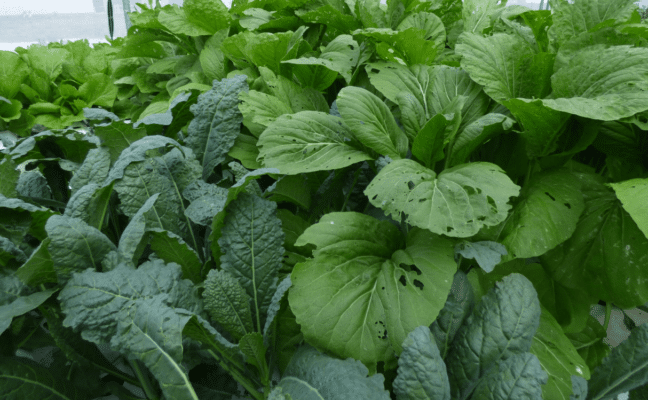Kale - Discover the Health Benefits: A Nutrient-Dense Superfood
The Tamil name for kale is Parattai keerai. It is also known as karam saag in Hindi.
Table of Contents
Origins
Kale is a leafy green vegetable that belongs to the Brassica oleracea family, which also includes other cruciferous vegetables such as cabbage, broccoli, and Brussels sprouts. The plant is a non-heading, cabbage-like plant with curly or straight, loose blue-green or purple leaves. Kale is highly nutritious and contains many essential vitamins and minerals.
Origin:
Kale is believed to have originated in the eastern Mediterranean and Anatolia, where it was cultivated for food beginning by 2000 BCE at the latest. . These forms, which were referred to by the Romans as Sabellian kale, are considered to be the ancestors of modern kales. The earliest record of cabbages in Western Europe is of hard-heading cabbage in the 13th century. Records in 14th-century England distinguish between hard-heading cabbage and loose-leaf kale.

A Nutritious and Delicious Leafy Green Vegetable
A Nutritious and Delicious Leafy Green Vegetable
Vitamins:
Vitamin A: Crucial for maintaining healthy vision, supporting immune function, and promoting skin health.
Vitamin K: For bone metabolism you need it as well as important for blood clotting.
Vitamin C: An antioxidant that supports the immune system and aids in collagen synthesis.
Vitamin B6: Important for brain development, metabolism, and the nervous system.
Folate (B9): Vital for DNA synthesis and cell division.
Minerals:
Calcium: Vital for maintaining strong bones and supporting muscle function.
Potassium: Plays a key role in regulating blood pressure and balancing fluid levels.
Magnesium: Essential for muscle and nerve function, blood glucose control, and maintaining bone health.
Antioxidants:
Beta-carotene: Did you know that it is an Antioxidant.
Quercetin: Possesses anti-inflammatory and antiviral properties.
Kaempferol: Has potential anti-cancer, anti-inflammatory, and antioxidant effects.
Flavonoids: A category of antioxidants linked to numerous health benefits.
Fiber: It is a good source of dietary fiber, promoting digestive health and helping with weight management.
Protein: While not as high in protein as some other sources, kale contributes to overall protein intake, supporting various bodily functions.
Omega-3 Fatty Acids: Kale contains a small amount of alpha-linolenic acid (ALA), which is beneficial for heart health and inflammation regulation.

Some of the key health benefits of kale include
Some of the key health benefits of kale include:
High in Nutrients: Kale is packed with essential vitamins (A, C, K, B6, and folate) and minerals (calcium, potassium, magnesium, and phosphorus), which support overall health and well-being.
Rich in Antioxidants: It contains various antioxidants, such as beta-carotene, quercetin, and kaempferol, which help protect cells from oxidative stress and may reduce the risk of chronic diseases.
Supports Heart Health: The fiber, potassium, and antioxidants found in kale contribute to heart health by lowering cholesterol levels, regulating blood pressure, and reducing the risk of heart disease.
Bone Health: It is an excellent source of vitamin K and calcium, both of which are essential for bone health and may help prevent osteoporosis and bone fractures.
Anti-inflammatory Properties: Kale contains compounds with anti-inflammatory effects, which may help reduce inflammation in the body and lower the risk of chronic diseases like arthritis and certain types of cancer.
Aids Digestion: The fiber content in present in it promotes healthy digestion and regular bowel movements, preventing constipation and supporting gut health.
Weight Management: It is low in calories and carbohydrates but high in fiber, making it a great addition to weight loss and management diets by promoting satiety and reducing calorie intake.
Supports Eye Health: The high levels of vitamin A and lutein found in the leaves help maintain healthy vision and may reduce the risk of age-related eye disorders like macular degeneration and cataracts.
Incorporating kale into your diet regularly can contribute to overall health and well-being, making it a valuable addition to a balanced and nutritious diet.
